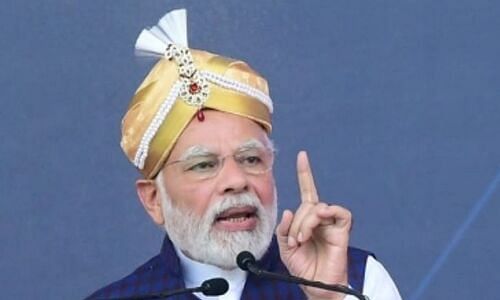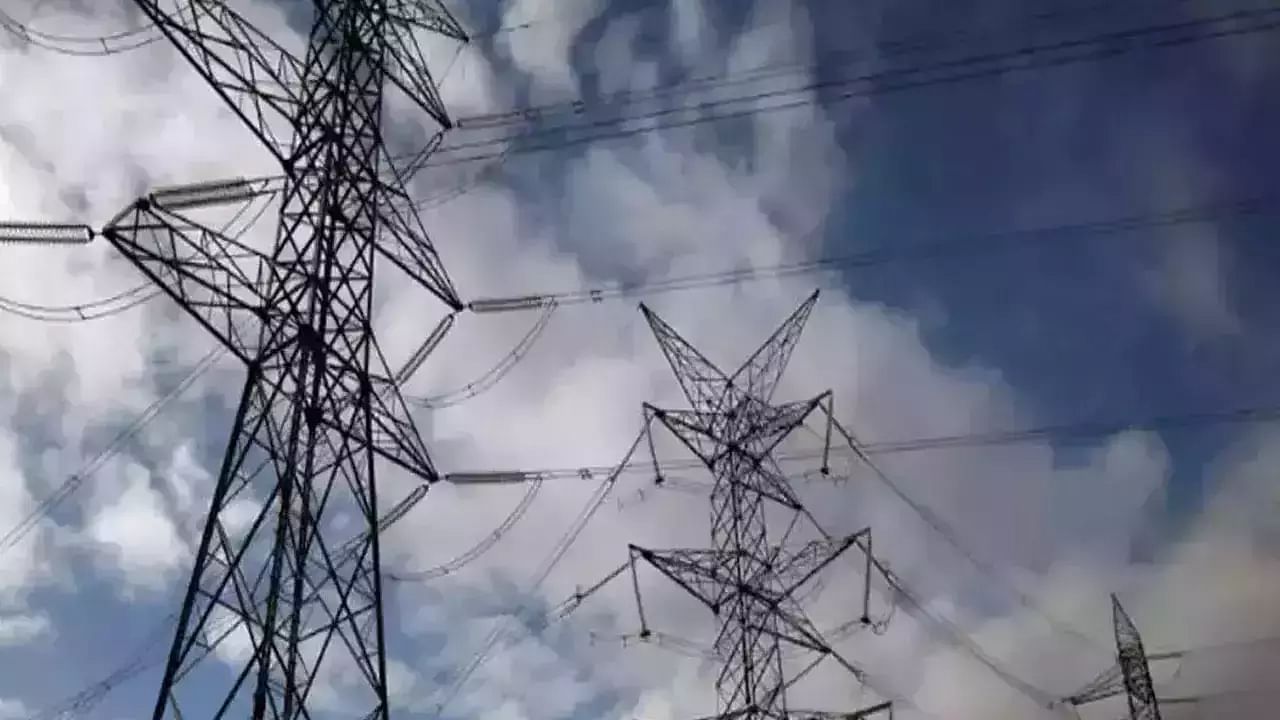15 August, 2022 | 03:47 AM
https://www.dailynews.express/posts/indias-security-and-foreign-policies-pay-rich-dividends
India's security and foreign policies pay rich dividends

DC Pathak (The writer is a former Director Intelligence Bureau) The ongoing Ukraine-Russia military conflict, the emerging pattern of developments in West Asia and the inscrutable economic 'Cold War between the US-led West and the residual Communist empire now led by China, continue to shape the current geopolitics. It has to be acknowledged that India under Prime Minister Modi has handled international relations in this global setting in a manner that has best served the security and economic interests of the nation.An approach - free of ideological tints - too big power rivalry that was in evidence in the context of Russian military intervention in Ukraine, enabled India to see that a sudden call for activation of NATO by President Biden and the talk of giving members of this military alliance to Ukraine, did create security concerns for Russia, that an emphasis on the sovereign democratic status of Ukraine guaranteeing 'one man one vote regardless of distinction of creed, language and region and without involving the country in such an alliance, was important and that an immediate stoppage of military operations to be followed by a 'peace pact' between the two neighbours in conflict, was the way out of the global crisis. Prime Minister Modi who had the distinction of being the only world leader favoured by both Ukrainian President Zelensky and President Putin as a mediator, spoke to both early on to share India's stand with them. The US-led West is pumping in arms and other war equipment into Ukraine to help the Ukrainian army - by proxy - to resist the Russian military action but in the process, this has become an unending conflict in which Russia is choosing its targets without having to unleash an all-out war. A significant feature of this conflict is that the Indian formula for ending it still holds good. India's constructive policy stood its ground through the phase of sanctions imposed by the US and its allies on Russia and the multiple voting in UNSC on the Russian military action and in various summits like those of Quad, BRICS and G-7, many participants showed an understanding of India's stand. The US abstained from making any specific criticism of India's policy as both Prime Minister Modi and President Biden clearly understood that regardless of the Ukraine episode, Indo-US relations reflecting the natural friendship between the two largest democracies were destined to touch the deepest levels. It also must have been seen by the democratic world that the Indo-Russia friendship was helping to keep Putin from totally drifting towards China — and this was good as much for the Western democracies as it was for India specifically. It is in the fitness of things that the US has brought back its focus on the aggressive designs of China by asserting its support to Taiwan and sending Speaker Nancy Pelosi to Taipei against President Xi Jinping's warnings. India's military resilience on the LAC on the one hand and total support to Quad on the other, are a part of India's strategy to thwart Chinese aggression on land and sea. A consistent campaign of India against terrorism at all international forums has exposed not only Pakistan but also the Sino-Pak axis. India is positioning itself well as signs emerge of a new Cold War between the US and China. China has been seeking the economic route to becoming a superpower - apart from building its military might - and the countering response of the US since the time of President Donald Trump has been to take on the former in the sphere of economy and trade. At the last Quad summit in Tokyo in May this year, President Biden significantly launched an initiative for building economic relationships called Indo-Pacific Economic Cooperation for Prosperity (IPEC). Besides the four Quad members, nine more Asian countries joined the move. IPEC declared that "the US will explore with partners the development of an Indo- Pacific economic framework that will define their shared objectives around trade facilitation, digital economy and technology, supply chain resilience, decarbonization and clean energy, infrastructure, workers standards and other areas of shared interest." India actively supported the initiative, expressed its commitment to working with all members of IPEC and affirmed that this was in furtherance of India's aim of making the Indo-Pacific a free, open and inclusive region. China predictably denounced the move — after Chinese Foreign Minister Wang Yi had held consultations with the new Pakistani Foreign Minister Bilawal Bhutto Zardari — as the US attempted to 'concoct' a grouping by 'ganging up' with some countries to change China's 'neighbourhood environment'. India has handled US-China, US-Russia and China-Pakistan relationships in a manner that best served its own security and economic impact interests. This is a creditable strategic feat. India's special friendship with Russia has proved to be of crucial help in fending off the hostile plans of Pakistan to involve radical Islamic forces in cross-border terrorism against this country particularly after the success it achieved in reinstalling the Taliban Emirate in Kabul. Pakistan obviously took advantage of the US compulsions for withdrawing American troops from Afghanistan. With the benefit of effective collaboration with the Emirate, the Pakistani ISI's capacity to create trouble in Kashmir and spread radicalization in the rest of the country has sharply increased. Pakistan has declared that India with its 'Hindutva politics' was its principal adversary and provocatively alleged that the Muslim minority of India was insecure under the Modi regime. There is a clear ISI hand behind the recent spurt in terror attacks on vulnerable individual Hindus carried out in revenge for the alleged 'insult' to Prophet Mohammad by a BJP functionary during a TV discussion. Pakistan has taken its anti-India rhetoric to the OIC and escalated communal propaganda against India with the help of lobbies in the West and elsewhere. Its military alliance with China and the covert offensives of the two hostile neighbours are a cause for concern but the security and diplomatic setup of India are fully geared to deal with them. Developments in the Islamic world are currently impacting geopolitics in a manner that requires India to keenly follow them and correctly interpret them for its own strategic interests. In the backdrop of the ongoing Ukraine-Russia military impasse, President Biden made a special visit to Israel and Saudi Arabia while the Russian President, Vladimir Putin, soon thereafter dashed to Iran to enlist the latter's support in the environment created by the US and European sanctions against Russia. The alignments within the Muslim world are dictated by the fundamental historical differences within Islam which must be clearly understood for the sake of our national security and international relations. Sunni radical forces represented by Taliban, Al Qaeda and ISIS carry the historical legacy of the 19th-century Jihad that the Ulema of the times led by Abdul Wahab launched against the European colonial powers for their encroachment on 'Muslim lands. This Ulema also called for the revival of the puritan Islam of the days of the 'pious Caliphs'. It would be relevant for India's strategic analysts to note that the Jehad on the Indian subcontinent was directed from Swat valley in what is now Khyber Pakhtunkhwa in Pakistan which was to become the natural home ground of the Taliban - a product of the Wahabi movement. It is this radical force that was deputed by Prime Minister Benazir Bhutto to Kabul in 1993 to control the turbulent situation in Afghanistan and ultimately establish the first Emirate there in 1996. Islamic radicals consider the US-led West as their main enemy and oppose Muslim countries that were in the latter's camp. This is why Saudi Arabia and UAE feel threatened by radicals even though they tried to compete with them on the scale of fundamentalism. Pakistan unsurprisingly has — from the very beginning of the US-led 'war on terror launched in the wake of 9/11 — been on the right side of the radical leadership. In terms of history again, a stream of Islamists represented today by Jamaat Islami's HuM and the Saudi-backed Lashkar e Toiba (LeT) had taken to opposing pro-Soviet Arab regimes of Egypt and Syria in the Cold War era and even at present they – unlike the Islamic radicals – do not direct their ire against the US. They follow Islamic thinkers Mohammad Abdus, Hasan Al Banna and Maulana Abul Ala Maudoodi who believed that an Islamic state could exist in competition not conflict with Western democracy. When the anti-Soviet armed campaign in Afghanistan led by the likes of HuM and LeT on the slogan of Jehad - with the full backing of the US - succeeded, the Pakistani ISI planned to accelerate cross-border terrorism against India in Kashmir with the aim of replicating the success of the Afghan Jehad there with the help of militant outfits under its control such as HuM, LeT and Jaish-e-Mohammad. The US gave Pakistan all credit for the withdrawal of the Soviet army from Afghanistan and did not take notice of the Pakistani terror offensive on the Kashmir front on the disingenuous plea of making a distinction between 'good terrorists' and 'bad terrorists' - which was simply a way of saying that the US was primarily concerned with Islamic radical forces that attacked it and prepared to look at cross border terror on the Kashmir front as a dimension of the Indo-Pak dispute regarding that territory. Over a period of time, the ISI was able to draft radical outfits like the Taliban, Al Qaeda and ISIS in the anti-India proxy war. With its success in reinstalling the Taliban Emirate in Kabul, Pakistan is now escalating its covert offensive against India. The Biden regime does see the threat from Islamic radicals and continues to pursue the strategy of eliminating the leadership of Al Qaeda — the US operation that took out Osama bin Laden at Abbottabad in Pakistan during President Obama's regime in 2011 has in a way been repeated in the covert drone attack killing Osama's successor, Ayman Al Zawahiri, at a safe house at Kabul on July 31 this year. Presuming that Islamic radicals might be bracketing India with the US, a spurt in the activity of the Taliban-Al Qaeda combined against this country cannot be ruled out. In any case, India has to deal with the added threat of Islamic terror from the Pak-Afghan belt, largely on its own. To understand Iran under the Ayatollahs it is necessary to recall that Shiism arose from the Sunni Kharijite revolt against Caliph Ali whose followers developed a belief that as the Imam, Ali was the temporal as well as the spiritual guide for Muslims and also the inheritor of some divine traits - a concept that was anathema for puritan Sunnis. Sunni and Shiite extremists are therefore the mortal enemies of each other - which explains, among other things, the hostility between Saudi Arabia and Iran. It also makes it clear why Islamic radicals go after Shiites in a big way. A pronounced ideological feature of Ali's regime was a certain glorification of poverty practised by the Caliph himself — this gave classical Shiism a left-of-the-centre and anti-capitalist image. These historical memories explain to an extent the anti-US polity of Iran that drew President Putin to Tehran for consultations. Iran's total enmity towards Israel flows also from the latter's intrinsic oneness with the US. It was the insight into the inner goings on in the Muslim world that led India's National Security Advisor to call a meeting of his counterparts from Central Asian Republics, Russia and Iran in Delhi in the wake of the Taliban takeover of Afghanistan in August 2021. China and Pakistan though invited did not join and this was in line with the current alignments in the Muslim world. CARs are Muslim predominant countries but being in tune with Russia they are averse to Islamic radical influences emanating from Afghanistan. Iran is even more staunchly opposed to the latter. China's response to the Taliban has been manoeuvred by Pakistan on the basis of a 'give and take' - also political opposition of radicals to the US suits China. This dialogue of the NSAs at Delhi laid a solid foundation for our foreign policy in West Asia. Prime Minister Modi's personal outreach to the rulers of Saudi Arabia and the UAE — who were for reasons of strategic security drawn closer to the US and its staunch ally Israel, in view of the enlarged threats from radical Islamic forces and Iran — has proved to be an effective course for handling the Islamic world where Pakistan is now the acknowledged foster parent of radical outfits. An equation with Iran helps India economically and adds to the defence against Islamic radicals of the Sunni mainstream. Shiism is the forerunner of Sufi thought and sits well with India's internal scene. Finally, it can be said that the single most important feature of the current geo-politics is the danger that the democratic world as whole faces from the axis of the Marxist dictatorship of China and the fundamentalist regime of Pakistan. The India-US friendship has to be geared to dealing with this twin threat. (IANS)





